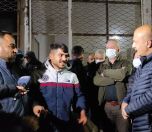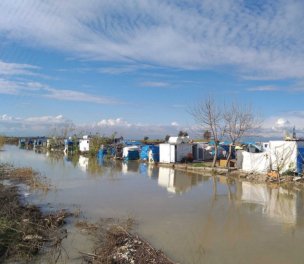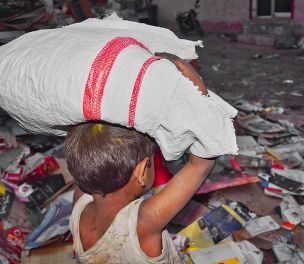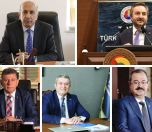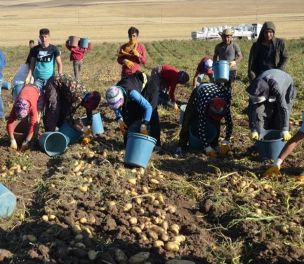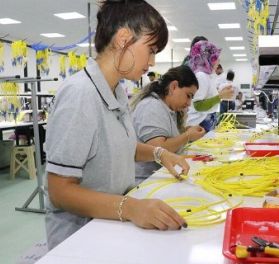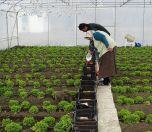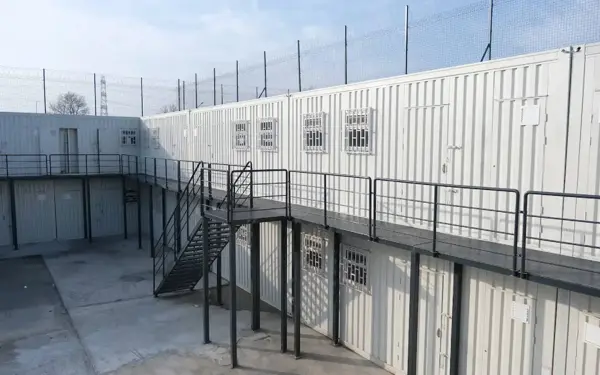* Photo: Zekeriya Karadavut / AA
Click to read the article in Turkish
With the support of International Labor Organization (ILO), the Development Workshop has prepared a report regarding the potential impacts of novel coronavirus (COVID-19) pandemic on mobile agricultural workers and their children as well as on the plant production in Turkey.
Jointly prepared by Dr. Besim Can Zırh, Dr. İlhan Zeynep Karakılıç, Özgür Çetinkaya, Selin Ayaeş, Ayşe Özsoy and Ertan Karabıyık, the report entitled "Virus or Poverty?" (Virüs mü Yoksulluk mu) sheds light on the lives of agricultural workers in Turkey during the COVID-19 outbreak.
Answering the questions of bianet, Ayşe Özsoy says that seasonal agricultural workers also had problems before the pandemic; however, with the outbreak of the pandemic, their lives have become harder.
'They don't seem likely to afford increasing costs'
How has the COVID-19 outbreak affected seasonal mobile agricultural workers? How is their current situation now?
We can say that the outbreak has affected the lives of mobile agricultural workers in two ways. First of all, as they are mobile - I mean - as their access to work depends on their capacity for travel, the restrictions imposed on travel due to the outbreak have caused new problems for the workers who could not go to the cities where they would work before the restrictions were announced. In order to overcome these obstacles, there are some bureaucratic procedures to follow. But there is a lack of information about how to follow these procedures. The agricultural mediators who organize workers do not know them very well, either.
Secondly, even when seasonal mobile agricultural workers can go to the cities where they will work, they face a great risk in terms of rearranging their transportation between where they live and work and their working orders according to new rules and social distance.
The measures that need to be taken to prevent the spread of the disease and to protect the health of seasonal mobile agricultural workers increase the costs. Workers and farmers do not seem likely to afford them. However, there are no accepted offers for alternatives, either. Thus, it is safe to say that seasonal mobile agricultural workers, whose working conditions were already very difficult and wages meagre, will now have difficulties in even finding these jobs during the outbreak and when they do, they will earn less.
These circumstances might mean that some workers will not participate in seasonal plant agriculture, which will mean an additional poverty for the ones who do not participate in work.
'Distance education is indeed distant from seasonal workers' children'
What about children? How has the outbreak affected the children of seasonal agricultural workers?
Even before the outbreak, the children of seasonal mobile agricultural workers were the losers of this process. The pandemic has aggravated the dimensions of these losses, whose impacts will be seen in the long-term. For instance, these children already had very limited means to go to school. They are now having a much worse education experience due to their lack of access and necessary devices for distance education.
We do not clearly know how distance education continues in the temporary tent areas where workers stay. Yes, several agricultural workers use smartphones like all of us, but we do not know how and how much these children used these phones for this purpose.
Even when they use them, who follows their education is another question mark. The only thing that we know is this: Distant education is indeed distant from these children. Therefore, the deficiencies of these children in terms of education need to be eliminated in different ways and methods.
And, one more thing: If seasonal mobile agricultural workers cannot find enough job this year, child labor will increase in the households of agricultural workers. It is another important point that needs to be followed.
'Quarantine means more poverty for them'
Are seasonal agricultural workers forced to choose between poverty and the virus, as the title of the report suggests?
In fact, both we and workers are making efforts to ensure that their option will be neither the virus nor poverty. However, the studies made on relatively poorer people from the lower classes before the outbreak show that it is not possible for these groups to adapt to "self-quarantine" situation. Seasonal mobile agricultural workers are having great deprivations in meeting their basic needs and they face this dilemma in one way or another.
The inability of the households where seasonal agricultural labor is the main source of income to participate in this process in a healthy and safe manner means financial difficulties and more poverty for them.
There are also some seasonal agricultural workers who have concerns and fears about this process and, perhaps, do not want to work or leave their houses. However, they do not have a regular income or savings to do it. As it is an informal field, there is also no public support that they can benefit from. Working is a kind of obligation for several laborers during the pandemic.
'No big differences in the measures taken'
What kind of measures has the state taken for seasonal agricultural workers and their children so far? Are these measures enough to protect them? How do you compare Turkey with the rest of the world in terms of measures?
There is no clear difference between the measures taken in the world and in Turkey. In especially EU and North American countries, seasonal agricultural labor force mostly depends on foreign/migrant workers. That being the case, the first question that came to minds there was labor shortage and, thus, the question of 'Who will work in the fields, now?' For instance, Germany made a deal with the Government of Romania and brought Romanian workers to Germany with special flights. They are, in fact, still doing this. The departure of workers from their own country, their arrival in Germany and transportation to their workplaces are undertaken according to certain protocols. But, it is not yet certain how much these protocols are followed.
Canada, on the other hand, is trying to find workers from Caribbean countries, especially from Mexico. It is not something new, it is the continuation of a guest worker program that has long been in effect. The only difference is this: Workers now need to stay in quarantine for 14 days and, within this period, the government of Canada provides financial support to employers so that they can pay it to the workers.
'What matters is to what extent these measures are implemented'
As for the measures in workplaces, in agricultural fields and gardens, they are not any different than Turkey. Ensuring social distance is the first measure. Social distance in workplaces as well as in the transportation and accommodation of workers is the first issue that is taken into consideration. Within this context, the number of service vehicles is increased, they attempt to prevent overcapacity in the lodgings, the number shifts is increased and the number of workers in teams is decreased so that workers can keep social distance in the fields or gardens. Workers are also obligated to wear masks. However, it is not very certain how some of these are put into practice or how they are implemented, we are not very well informed about it. But when we look at the social media messages of workers or organizations defending the rights of workers in these countries, it is pretty obvious that they are not implemented most of the time.
In short, the decisions taken in different countries of the world, including Turkey, are similar and they are mostly oriented towards limiting the potential of the virus to infect and spread. What matters is not the measures themselves, because they are more or less similar. What is important here is to what extent these measures are put into practice, how much they are inspected and how their extra costs are afforded. It is safe to say that there is no country that has fared well in that respect. Seasonal agricultural workers, unfortunately, live and work in adverse conditions, be that in developed or underdeveloped countries, local or migrant/foreign workers...
'They say "If crops are not harvested, we are done"'
How have these conditions affected plant production? What about the farmers? Is Turkey really faced with a crisis of agriculture?
There is, above all else, an increase in costs, especially in the intercity and intracity transportation of workers. Not only are there restrictions on traveling between cities, there are also some restrictions on commuting from where workers stay in the city (usually tent areas) to agricultural fields. This cost will have an effect on both farmers and workers at some point. We will see the extent of labor shortage in a very near future. But, till now, the procedures for getting a permit were challenging for workers and, thus, for producers. Any failure to ensure the mobility of enough labor force in a healthy and safe manner is likely to cause shortcomings in agricultural works and, thus, problems in the production of certain crops in certain geographies.
Some farmers are pending due to the seasonal calendar of their own crops. They hope that the effects of the outbreak will abate and a solution will be found for the problems until their harvest season comes. However, there are also the ones for whom the harvest season has already opened. These producers are waiting for a solution to both the transportation of workers and increasing costs. "Even if we wait, nature does not; if our crops are not harvested, we will be done," they say.
About Development Workshop"A group of young people with vision of conducting development activities in Turkey established the Development Workshop Working Group in 2003 to support and be a part of national and international development efforts. This working group consisted of professionals who are experts in social anthropology, sociology, physical anthropology, international relations, biology and forestry. On 3 November 2004, this group of professionals founded Development Workshop as a cooperative. Cooperatives are not a common choice for organisation in the area of social development in Turkey or in the world. The most significant reasons for becoming organised as a cooperative are solidarity, cooperative production and contributing to new ideas in the area of social development. Another important reason is becoming a multi-partner actor in social development activities and having active participation in the democratic process. "The Development Workshop is a non-profit cooperative established to support the development of Turkey and to provide contributions to conduct sustainable, reproducible and successful projects of all scales. The Development Workshop develops and implements programs in the field of governance, social development, education, and children and youth for and together with non-governmental organisations and producer unions. Areas of particular interest and strength for the Workshop are local development programs and project development, research and capacity building, promoting the cooperative movement, apiculture, seasonal labour migration and child labour." * Source: Development Workshop official website |
(HA/SD)





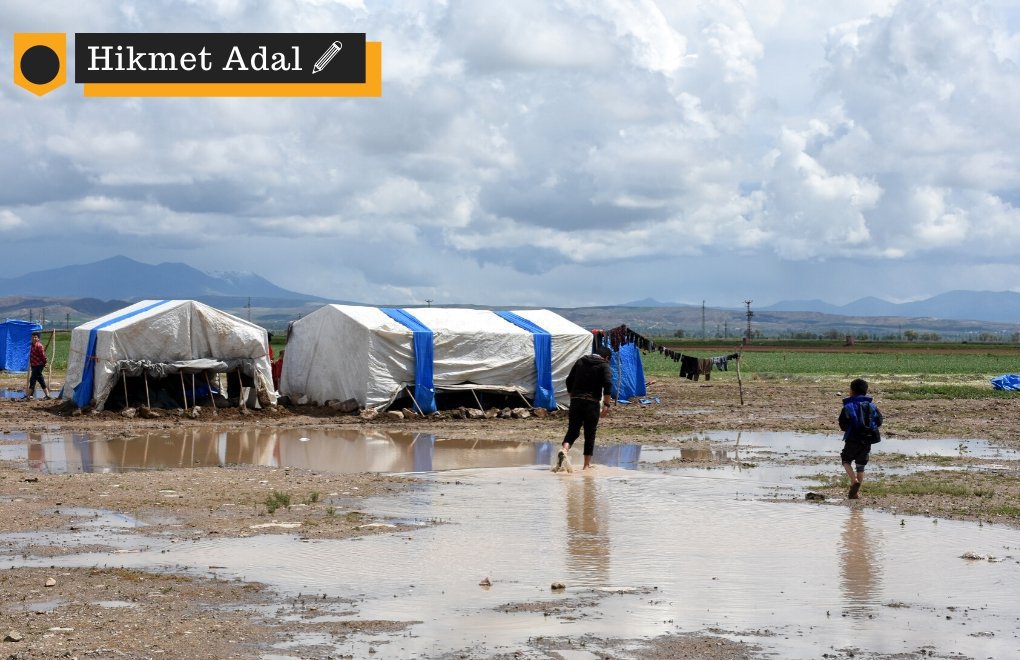
-132.jpg)
